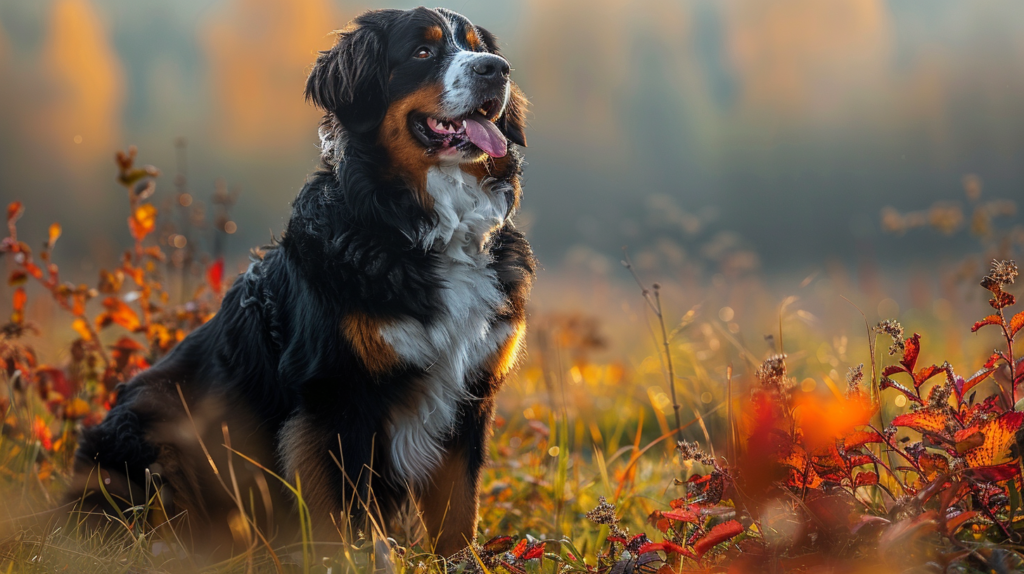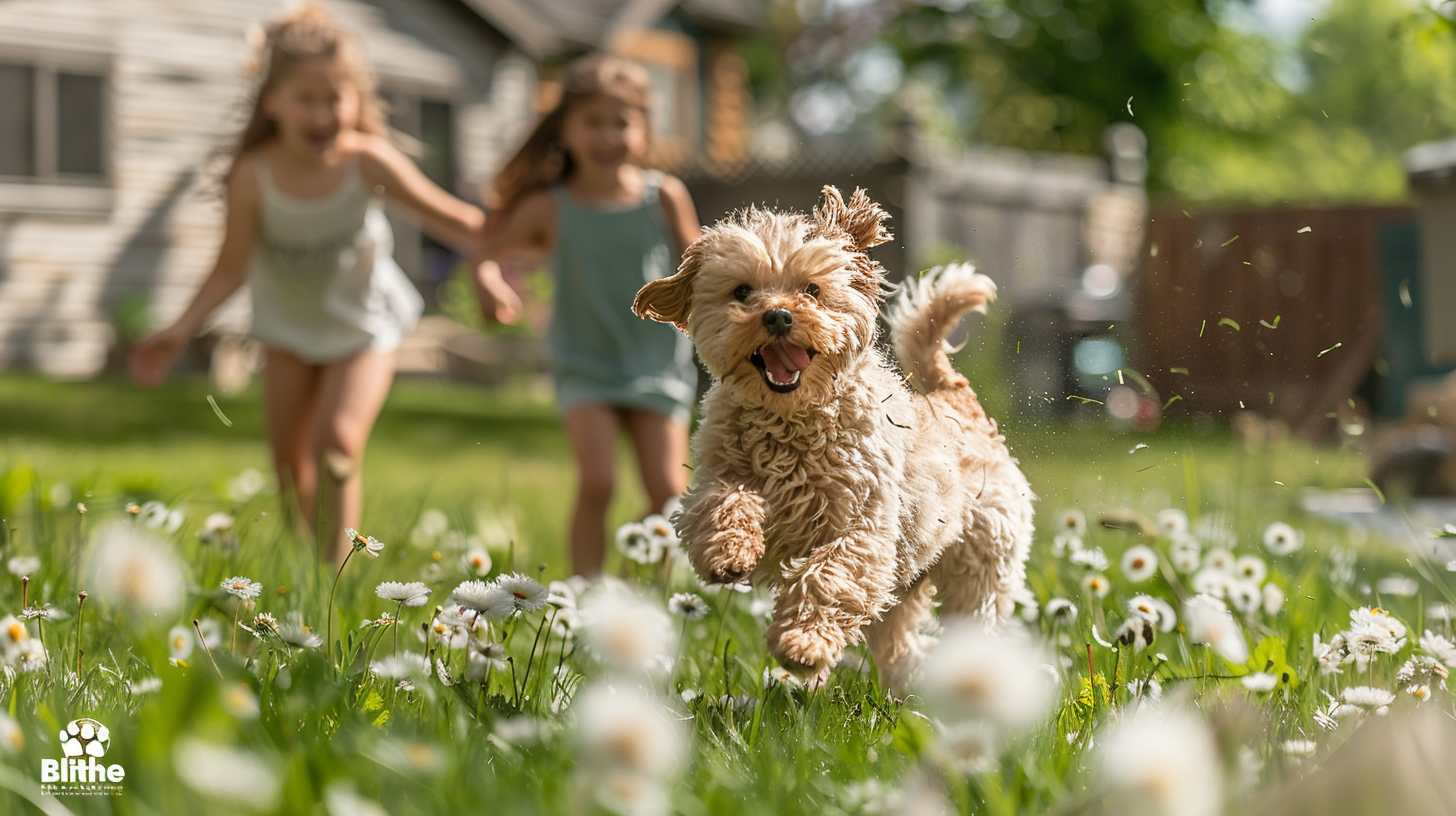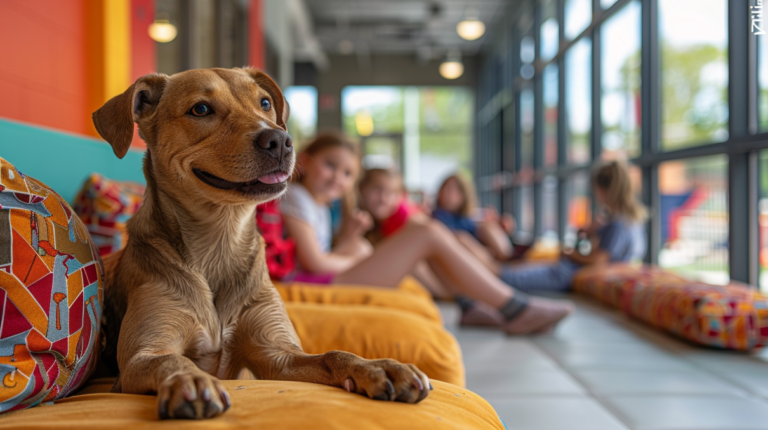Discover why Feist Dogs make exceptional family pets. Expert guide covering temperament, care, training tips, and everything you need to know about these loyal companions.
Table of Contents
Did you know that Feist Dogs have been America’s best-kept secret for over 200 years? These remarkable hunting companions, originally bred in the Southern United States, are now capturing hearts across the globe as exceptional family pets. While many dog lovers focus on popular breeds like Golden Retrievers or German Shepherds, Feist Dogs offer a unique combination of loyalty, intelligence, and adaptability that makes them outstanding additions to modern families.
Feist Dogs represent one of the most versatile and underappreciated dog breeds in America today. These medium-sized terriers, weighing between 15-30 pounds, have evolved from their hunting origins to become beloved family companions. With their alert expressions, muscular builds, and unwavering devotion to their human families, Feist Dogs are proving that sometimes the best pets come in unexpected packages. Whether you’re a first-time dog owner or an experienced pet parent, understanding what makes these dogs special can help you decide if a Feist Dog might be the perfect addition to your household.

When I first encountered a Feist Dog at a rescue event in rural Tennessee three years ago, I was immediately struck by the breed’s confident demeanor and instant connection with children. That day changed my perspective on lesser-known breeds and sparked my passion for educating others about these remarkable dogs.
What Are Feist Dogs? Understanding the Breed Basics
Feist Dogs originated in the rural American South during the 18th and 19th centuries. These dogs were developed by crossing various terrier breeds with hunting dogs to create versatile farm companions capable of hunting small game, controlling vermin, and protecting property. The name “Feist” comes from an old English word meaning “a small mongrel dog,” though modern Feist Dogs are far from mongrels—they’re a distinct breed with specific characteristics and temperaments.
The United Kennel Club officially recognizes two main types of Feist Dogs: the Mountain Feist and the Treeing Feist. Both varieties share similar traits but have slight differences in size and hunting abilities. Mountain Feists typically weigh 10-22 pounds, while Treeing Feists can reach 25-30 pounds. Both types exhibit the same loyal, energetic, and intelligent characteristics that make them excellent family pets.
Physical Characteristics and Appearance
Feist Dogs possess a compact, athletic build that reflects their working heritage. Their coats come in various colors including tricolor (black, brown, and white), red and white, blue and white, or solid colors. Most Feist Dogs have short, smooth coats that require minimal grooming, making them low-maintenance pets for busy families.
Their ears can be either erect or semi-erect, giving them an alert, intelligent expression. Their eyes are typically dark and bright, reflecting their keen intelligence and eagerness to please. The tail is usually carried high and may be naturally bobbed or full-length, depending on the individual dog’s genetics.
Reason #1: Exceptional Loyalty and Family Bonding
One of the most compelling reasons why Feist Dogs make outstanding family pets is their extraordinary loyalty. These dogs form deep, lasting bonds with their human families that extend far beyond typical pet-owner relationships. Unlike some breeds that may show favoritism toward one family member, Feist Dogs typically develop strong connections with all family members, making them ideal for households with multiple people.
This loyalty manifests in various ways throughout daily life. Feist Dogs often follow their owners from room to room, not out of separation anxiety, but from a genuine desire to be involved in family activities. They’re naturally protective without being aggressive, making them excellent watchdogs who will alert families to visitors or unusual situations while maintaining a friendly demeanor toward welcomed guests.
Building Strong Family Connections
The bonding process with Feist Dogs begins early and continues throughout their lives. These dogs thrive on routine and predictability, which makes them particularly well-suited for families with children. They learn each family member’s schedule and adapt their behavior accordingly, often becoming more playful with children during after-school hours and calmer during evening family time.
Research from the American Kennel Club indicates that dogs with strong family bonds, like Feist Dogs, show reduced stress levels and improved overall health. This emotional stability translates into better behavior, easier training, and longer, healthier lives—benefits that extend to the entire family.
Reason #2: Intelligent and Highly Trainable Nature
Feist Dogs consistently rank among the most intelligent dog breeds, though their intelligence often goes unrecognized due to their relatively unknown status. These dogs possess both analytical intelligence (problem-solving abilities) and adaptive intelligence (learning from experience), making them exceptionally responsive to training efforts.
Their intelligence stems from their working background, where survival depended on quick thinking and rapid adaptation to changing situations. Modern Feist Dogs retain these cognitive abilities, which translate beautifully into family life. They quickly learn household rules, respond well to consistent training methods, and often anticipate their owners’ needs.
Training Success Stories and Methods
Professional dog trainers consistently report high success rates with Feist Dogs across various training disciplines. From basic obedience to advanced agility work, these dogs excel when provided with consistent, positive reinforcement training methods. Their eager-to-please nature means they respond particularly well to praise and treats, making training sessions enjoyable for both dogs and owners.
The key to successful Feist Dog training lies in mental stimulation combined with physical exercise. These dogs need jobs to do—whether that’s learning new tricks, participating in agility courses, or helping with simple household tasks. Puzzle toys, interactive games, and varied training routines help keep their active minds engaged and prevent behavioral issues that can arise from boredom.
Reason #3: Perfect Size for Modern Living Spaces
In today’s housing market, where many families live in smaller homes, apartments, or condominiums, Feist Dogs offer the perfect size solution for pet ownership. Weighing between 15-30 pounds and standing 12-18 inches tall, they’re large enough to be sturdy companions for children while small enough to comfortably fit in modern living spaces.
This ideal size makes Feist Dogs particularly appealing to urban families who want a dog that can adapt to apartment living without sacrificing the benefits of having a medium-sized pet. Unlike toy breeds that may be too delicate for households with active children, or large breeds that may be overwhelming in small spaces, Feist Dogs strike the perfect balance.
Space Requirements and Exercise Needs
While Feist Dogs adapt well to smaller living spaces, they do require regular exercise to maintain their physical and mental health. A typical adult Feist Dog needs approximately 60-90 minutes of exercise daily, which can be divided into multiple walks, play sessions, and mental stimulation activities.
The beauty of their exercise needs lies in their flexibility. Feist Dogs are equally content with long hiking adventures or shorter urban walks, as long as they receive consistent daily activity. They excel at apartment living when their exercise needs are met, often becoming calmer and more relaxed indoors after adequate physical activity.
Reason #4: Excellent with Children of All Ages
One of the most remarkable qualities of Feist Dogs is their natural affinity for children. These dogs seem to possess an innate understanding of how to interact appropriately with kids of different ages, adjusting their energy levels and play styles accordingly. With toddlers, they tend to be gentler and more patient, while with older children, they can match higher energy levels for active play.
This adaptability makes Feist Dogs exceptional family pets for households with multiple children or families planning to expand. Their medium size means they’re sturdy enough to handle enthusiastic child play without being overwhelming or potentially dangerous. Unlike some terrier breeds that may be too intense for young children, Feist Dogs maintain a balanced temperament that works well in family environments.
Safety and Supervision Guidelines
While Feist Dogs are naturally good with children, proper introduction and supervision remain important, especially with very young children. These dogs respond well to children who understand basic pet interaction rules, such as gentle petting, respecting the dog’s space during meals, and appropriate play behavior.
Parents should teach children how to read their Feist Dog’s body language and respect signs that the dog needs quiet time. With proper guidance, children and Feist Dogs often develop incredibly strong bonds that provide both parties with companionship, emotional support, and opportunities for learning responsibility and empathy.
Reason #5: Low Maintenance Grooming and Health Care
For busy families, the low-maintenance nature of Feist Dogs represents a significant advantage. Their short, smooth coats require minimal grooming—typically just weekly brushing to remove loose hair and maintain coat health. This is particularly beneficial for families with limited time for extensive pet care routines or those dealing with pet allergies.
Regular grooming needs include weekly brushing, monthly nail trims, and routine dental care. Their coats naturally repel dirt and debris, meaning baths are only necessary when the dog becomes particularly dirty or smelly. This low-maintenance grooming routine translates into both time and cost savings for families.
Health Considerations and Veterinary Care
Feist Dogs are generally healthy breeds with few genetic health issues, largely due to their diverse genetic background and working dog origins. However, like all dogs, they benefit from regular veterinary care including annual check-ups, vaccinations, and preventive treatments for parasites.
Common health screenings for Feist Dogs should include hip and elbow evaluations, eye examinations, and heart health assessments. With proper care, these dogs typically live 12-18 years, providing families with long-term companionship. Their robust health means lower veterinary costs compared to breeds with known genetic health issues.
Reason #6: Versatile Activity Partners for Active Families
Feist Dogs excel as activity partners for families who enjoy outdoor adventures and active lifestyles. Their athletic build, endurance, and enthusiasm make them ideal companions for hiking, camping, jogging, and various outdoor sports. Unlike specialized sporting breeds that may require intense activity levels, Feist Dogs adapt their energy to match their family’s activity level.
These dogs particularly enjoy activities that engage both their physical and mental capabilities. Agility training, fetch games, and exploration walks provide the perfect combination of exercise and mental stimulation. Their natural curiosity and problem-solving abilities make them excellent hiking companions who stay engaged with their surroundings while remaining attentive to their human partners.
Activity Ideas and Exercise Variations
Successful Feist Dog ownership involves providing varied exercise and activity options. These dogs thrive on routine but also benefit from new experiences and challenges. Popular activities include:
Daily walks with varied routes help prevent boredom while providing necessary exercise. Feist Dogs enjoy exploring new neighborhoods, parks, and trails, making them excellent motivators for families to stay active and discover local areas.
Interactive play sessions such as fetch, frisbee, and tug-of-war provide both physical exercise and bonding opportunities. These dogs particularly enjoy games that challenge their problem-solving abilities, such as hide-and-seek or puzzle toys that dispense treats.
Agility training and obstacle courses can be created in backyards or local parks, providing mental stimulation alongside physical exercise. Many Feist Dogs excel in formal agility competitions, though casual backyard courses provide similar benefits.
Reason #7: Strong Guard Dog Instincts Without Aggression
The final compelling reason why Feist Dogs make excellent family pets lies in their natural protective instincts combined with their non-aggressive temperament. These dogs serve as excellent watchdogs, alerting families to visitors, unusual sounds, or potential security concerns without displaying the aggressive behaviors that can make some guard dog breeds unsuitable for family life.
This protective nature stems from their historical role as farm dogs responsible for protecting property and livestock. Modern Feist Dogs retain these instincts but have adapted them for suburban and urban family life. They’re naturally suspicious of strangers but quickly warm up to people welcomed by their families.
Balancing Protection with Socialization
The key to maximizing the protective benefits of Feist Dogs while maintaining their family-friendly nature lies in proper socialization from an early age. Well-socialized Feist Dogs learn to distinguish between normal neighborhood activities and genuine concerns, reducing false alarms while maintaining their protective vigilance.
Training should focus on teaching appropriate responses to different situations. Feist Dogs can learn to bark once or twice to alert their families, then settle down when reassured that the situation is normal. This balanced approach provides families with security awareness without the constant disruption that can occur with overly reactive breeds.
Understanding Feist Dog Temperament and Behavior
The temperament of Feist Dogs combines the best aspects of terrier intelligence with the adaptability of working breeds. These dogs are naturally confident without being domineering, energetic without being hyperactive, and protective without being aggressive. This balanced temperament makes them suitable for a wide range of family situations and lifestyles.
Feist Dogs typically display consistent personalities throughout their lives, though individual dogs may show slight variations based on their specific lineage and early experiences. Most exhibit high energy levels during puppyhood that moderate into steady, manageable activity levels as adults. Their intelligence means they continue learning and adapting throughout their lives, making them excellent long-term family companions.
Behavioral Characteristics and Personality Traits
Understanding the specific behavioral characteristics of Feist Dogs helps families prepare for successful pet ownership. These dogs are naturally curious and investigative, traits that make them excellent problem-solvers but can also lead to mischief if not properly channeled through training and mental stimulation.
They tend to be naturally clean dogs that housetrain relatively easily, though consistency and patience remain important during the training process. Their intelligence means they quickly learn household routines and expectations, often becoming reliable family members faster than many other breeds.
Social behavior with other pets varies among individual Feist Dogs, though most adapt well to multi-pet households when properly introduced. Their terrier heritage means they may show some prey drive toward small animals, making supervised introductions important with cats, rabbits, or other small pets.
Feeding and Nutritional Requirements for Feist Dogs
Proper nutrition plays a crucial role in maintaining the health and vitality of Feist Dogs. These active, medium-sized dogs require balanced diets that support their energy levels while maintaining healthy body weight. Their nutritional needs vary based on age, activity level, and individual metabolism, making personalized feeding plans important for optimal health.
Adult Feist Dogs typically require 1.5 to 2 cups of high-quality dry dog food daily, divided into two meals. This amount may need adjustment based on the dog’s activity level, age, and body condition. More active dogs may require additional calories, while less active or older dogs may need reduced portions to prevent weight gain.
Age-Specific Feeding Guidelines
Puppies, adults, and senior Feist Dogs have different nutritional requirements that should be addressed through appropriate food choices and feeding schedules. Puppy Feist Dogs need nutrient-dense foods that support rapid growth and development, typically requiring three to four small meals daily until six months of age.
Adult dogs benefit from consistent feeding schedules with morning and evening meals. This routine helps with digestion, maintains energy levels throughout the day, and supports training efforts. Senior dogs may require specialized diets with adjusted protein levels and added supplements to support joint health and cognitive function.
Quality protein should form the foundation of any Feist Dog’s diet, supporting their active lifestyle and maintaining lean muscle mass. Look for dog foods listing meat, poultry, or fish as the first ingredient, and avoid foods with excessive fillers or artificial additives.
Training Tips and Techniques for Success
Training Feist Dogs successfully requires understanding their intelligent, eager-to-please nature while respecting their independent thinking abilities. These dogs respond best to positive reinforcement training methods that incorporate mental stimulation alongside basic obedience work. Consistency and patience are key elements in developing well-behaved, happy Feist Dogs.
Start training early with basic commands such as sit, stay, come, and down. Feist Dogs typically learn these commands quickly, often mastering basic obedience within a few weeks of consistent training. Their intelligence means they benefit from varied training sessions that prevent boredom and maintain engagement.
House Training and Basic Obedience
House training Feist Dogs generally proceeds smoothly due to their natural cleanliness and desire to please their owners. Establish consistent routines with regular feeding times, frequent outdoor opportunities, and positive reinforcement for appropriate bathroom behavior. Most Feist Dogs achieve reliable house training within 4-8 weeks with consistent effort.
Crate training provides valuable support for house training while giving dogs a safe, comfortable space of their own. Choose appropriately sized crates that allow dogs to stand, turn around, and lie down comfortably without being so large that they can eliminate in one corner and sleep in another.
Basic obedience training should incorporate short, frequent sessions that maintain the dog’s attention and enthusiasm. Feist Dogs often become bored with repetitive training, so vary exercises and incorporate games and challenges to keep sessions interesting and effective.
Feist Dog Development: Size & Weight Guide by Age
| Age Range | Weight (lbs) | Height (inches) | Exercise Needs | Training Focus | Special Considerations | ||||||||||||||||||||||||||||||||||||||||||||||||||||||||||||||||||||||||||||||||||||||||||||||||||||||||||||||||||||||||||||||||||||
|---|---|---|---|---|---|---|---|---|---|---|---|---|---|---|---|---|---|---|---|---|---|---|---|---|---|---|---|---|---|---|---|---|---|---|---|---|---|---|---|---|---|---|---|---|---|---|---|---|---|---|---|---|---|---|---|---|---|---|---|---|---|---|---|---|---|---|---|---|---|---|---|---|---|---|---|---|---|---|---|---|---|---|---|---|---|---|---|---|---|---|---|---|---|---|---|---|---|---|---|---|---|---|---|---|---|---|---|---|---|---|---|---|---|---|---|---|---|---|---|---|---|---|---|---|---|---|---|---|---|---|---|---|---|---|---|---|---|
| 8-12 Weeks | 3-6 lbs | 6-8 inches | Light play, 15-20 min/day | House training, basic commands | Critical socialization period | ||||||||||||||||||||||||||||||||||||||||||||||||||||||||||||||||||||||||||||||||||||||||||||||||||||||||||||||||||||||||||||||||||||
| 3-6 Months | 6-12 lbs | 8-12 inches | 30-45 min/day, short walks | Leash training, sit/stay commands | Teething phase, chew toys needed | ||||||||||||||||||||||||||||||||||||||||||||||||||||||||||||||||||||||||||||||||||||||||||||||||||||||||||||||||||||||||||||||||||||
| 6-12 Months | 12-20 lbs | 10-15 inches | 45-60 min/day, active play | Advanced obedience, recall training | Growth spurts, adjust food portions | ||||||||||||||||||||||||||||||||||||||||||||||||||||||||||||||||||||||||||||||||||||||||||||||||||||||||||||||||||||||||||||||||||||
| Adult (1-7 years) | 15-30 lbs | 12-18 inches | 60-90 min/day, varied activities | Maintenance
Common Health Considerations and Preventive CareWhile Feist Dogs are generally healthy breeds, understanding potential health considerations helps families provide appropriate preventive care and recognize early warning signs of health issues. Regular veterinary care, proper nutrition, and adequate exercise form the foundation of good health management for these dogs. Common health screenings should include annual physical examinations, dental health assessments, and age-appropriate diagnostic tests. Early detection of potential issues allows for prompt treatment and better outcomes. Many health problems can be prevented or minimized through proper care and attention to early symptoms. Preventive Health MeasuresVaccination schedules should follow veterinary recommendations based on local disease risks and the dog’s lifestyle. Core vaccines typically include rabies, distemper, parvovirus, and adenovirus, while non-core vaccines may be recommended based on geographic location and exposure risks. Parasite prevention includes regular treatments for fleas, ticks, and intestinal worms, as well as heartworm prevention in areas where these parasites are common. Monthly preventive medications provide convenient, effective protection against most common parasites. Dental health requires regular attention through daily teeth brushing, dental chews, and professional cleanings as recommended by veterinarians. Good dental hygiene prevents painful dental disease and supports overall health throughout the dog’s life. Creating the Ideal Home EnvironmentSetting up the ideal home environment for Feist Dogs involves providing appropriate space, mental stimulation, and safety measures that support their active, intelligent nature. These dogs thrive in homes that offer both indoor comfort and outdoor access, though they adapt well to various living situations when their needs are met. Indoor spaces should include comfortable sleeping areas, access to fresh water, and safe zones where dogs can retreat for quiet time. Feist Dogs often appreciate having elevated sleeping spots that allow them to observe household activities while resting. Safety Considerations and Dog-ProofingDog-proofing homes for Feist Dogs requires attention to their curious, investigative nature and moderate size. Secure potential hazards such as toxic plants, cleaning supplies, and small objects that could be swallowed. Their intelligence means they may figure out how to open cabinets or access restricted areas, so secure latches may be necessary. Outdoor spaces should be securely fenced, as Feist Dogs may be tempted to chase small animals or investigate interesting scents. Check fencing regularly for potential escape routes, and ensure gates have secure latches that cannot be easily opened by clever dogs. Provide appropriate toys and enrichment activities to prevent destructive behavior that may result from boredom or excess energy. Rotate toys regularly to maintain interest, and choose durable options that can withstand active play. Socialization and Community IntegrationProper socialization helps Feist Dogs become well-adjusted family members who interact appropriately with people, other animals, and various environmental situations. Early socialization during puppyhood provides the foundation for confident, friendly adult dogs, though socialization should continue throughout the dog’s life. Expose Feist Dogs to various people, including children, adults, and seniors, in controlled, positive situations. This helps them learn appropriate social behaviors and reduces anxiety in new situations. Puppy socialization classes provide structured environments for learning social skills alongside basic training. Building Positive Community RelationshipsWell-socialized Feist Dogs often become neighborhood favorites due to their friendly, outgoing personalities combined with their manageable size and attractive appearance. Regular walks, visits to dog-friendly businesses, and participation in community events help build positive relationships within the neighborhood. Training classes, dog sports, and social activities provide opportunities for both dogs and owners to build connections within the dog-owning community. Many Feist Dog owners find these activities rewarding for both socialization and ongoing training opportunities. Expert Tips for New Feist Dog OwnersFeist Dogs offer wonderful opportunities for both experienced and first-time dog owners, though success requires understanding their specific needs and characteristics. These expert tips help new owners navigate the early weeks and months of Feist Dog ownership while building strong, positive relationships with their new family members. Establish consistent routines from the first day home. Feist Dogs thrive on predictability and quickly adapt to household schedules when routines are clear and consistent. This includes feeding times, exercise schedules, and bedtime routines that provide structure and security. Provide adequate mental stimulation alongside physical exercise. These intelligent dogs need mental challenges to prevent boredom and potential behavioral problems. Puzzle toys, training sessions, and varied activities keep their minds engaged and satisfied. Be patient during the adjustment period. While Feist Dogs typically adapt quickly to new homes, allow several weeks for complete adjustment. Some dogs may be initially reserved or overly excited, but most settle into consistent personalities within a month or two. Invest in quality training resources including books, videos, or professional instruction. The intelligence and eagerness to please that make Feist Dogs excellent family pets also mean they benefit significantly from proper training guidance. Common Mistakes to AvoidNew Feist Dog owners sometimes underestimate their dog’s exercise needs, leading to behavioral problems that stem from pent-up energy rather than training issues. Ensure adequate daily exercise before addressing behavioral concerns through training modifications. Avoid spoiling these charming dogs to the point where they become demanding or manipulative. Their intelligence means they quickly learn how to get what they want, so consistent boundaries and expectations are important from the beginning. Don’t neglect socialization opportunities, especially during the critical puppy period. Well-socialized Feist Dogs are more confident, adaptable, and enjoyable family companions throughout their lives. When to Consult Your VeterinarianUnderstanding when to seek professional veterinary advice helps Feist Dog owners provide appropriate care while avoiding unnecessary anxiety about normal behaviors and minor issues. Establish relationships with qualified veterinarians before problems arise, and don’t hesitate to seek guidance when concerns develop. Immediate veterinary attention is necessary for signs of serious illness or injury, including difficulty breathing, loss of consciousness, severe vomiting or diarrhea, signs of extreme pain, or any situation where you’re concerned about your dog’s immediate safety. Schedule veterinary consultations for persistent changes in appetite, energy levels, or bathroom habits that last more than a day or two. Gradual changes may indicate developing health issues that benefit from early intervention. Routine preventive care should include annual examinations for healthy adult dogs, with more frequent visits recommended for puppies and senior dogs. Discuss appropriate vaccination schedules, parasite prevention, and screening tests based on your dog’s age and risk factors. Building Relationships with Pet Care ProfessionalsSuccessful Feist Dog ownership often involves relationships with various pet care professionals beyond veterinarians. Professional dog trainers can provide valuable guidance for both basic training and addressing specific behavioral challenges. Grooming professionals, while not essential for these low-maintenance dogs, can provide nail trimming and other services that some owners prefer to leave to experts. Pet sitters or boarding facilities become important when families travel. Introduce your Feist Dog to these services before they’re needed, allowing time for adjustment and ensuring your dog will be comfortable when you’re away. For more expert pet care tips and product recommendations, visit BlithePet.com — your trusted source for pet wellness. Myth-Busting: Common Feist Dog MisconceptionsDespite their many positive qualities, Feist Dogs are often subject to misconceptions that may prevent families from considering them as potential pets. Understanding the facts behind these myths helps potential owners make informed decisions based on accurate information rather than unfounded assumptions. Myth #1: Feist Dogs are too aggressive for families with children. This misconception likely stems from their terrier heritage and hunting background. In reality, well-socialized Feist Dogs are excellent with children and often show remarkable patience and gentleness with young family members. Myth #2: These dogs require extensive outdoor space and cannot adapt to urban living. While Feist Dogs enjoy outdoor activities, they adapt well to apartment and urban living when their exercise needs are met through daily walks, play sessions, and mental stimulation. Myth #3: Feist Dogs are difficult to train due to their independent nature. Their intelligence and eagerness to please actually make them highly trainable dogs that respond well to positive reinforcement methods and consistent training approaches. Setting Realistic ExpectationsUnderstanding what to realistically expect from Feist Dogs helps families prepare for successful pet ownership. These dogs are not perfect—they require regular exercise, consistent training, and ongoing socialization to reach their potential as family companions. They may show some stubbornness during training, particularly if they become bored with repetitive exercises. Their intelligence means they need variety and mental stimulation to remain engaged and cooperative during training sessions. Some individual dogs may show stronger prey drives than others, making supervised introductions important when small pets are present in the household. However, most Feist Dogs can learn to coexist peacefully with cats and other small animals when properly introduced and managed. Feist Dog Development: Size & Weight Guide by Age
Feist Dogs vs Popular Family Breeds: Comprehensive Comparison
Essential Feist Dog Health & Care Timeline
Frequently Asked QuestionsEverything you need to know about Feist Dogs as family companions
Are Feist Dogs good with young children?
Absolutely! Feist Dogs are exceptional with children of all ages. Their medium size makes them sturdy enough for active play while being gentle with toddlers. These dogs naturally adjust their energy levels based on the child’s age and temperament. They’re patient, protective, and form strong bonds with family children, often becoming their most loyal companions and playmates.
How much exercise do Feist Dogs need daily?
Adult Feist Dogs require 60-90 minutes of exercise daily, which can be split into multiple sessions. This includes walks, play time, and mental stimulation activities. They adapt well to their family’s activity level – whether you enjoy hiking adventures or prefer neighborhood walks. The key is consistency and providing both physical exercise and mental challenges to keep them happy and well-behaved.
Can Feist Dogs live comfortably in apartments?
Absolutely! Despite their active nature, Feist Dogs adapt wonderfully to apartment living when their exercise needs are met. Their medium size (15-30 pounds) makes them ideal for smaller spaces. They’re naturally clean, relatively quiet, and become calm indoor companions after adequate daily exercise. Many urban families successfully raise happy, healthy Feist Dogs in apartments and condos.
Are Feist Dogs difficult to train?
Actually, Feist Dogs are quite easy to train! Their high intelligence and eager-to-please nature make them responsive to positive reinforcement methods. They learn basic commands quickly and excel in advanced training when kept engaged with varied exercises. The key is consistency, patience, and providing mental stimulation alongside physical exercise. Most families find them more trainable than many popular breeds.
What health problems are common in Feist Dogs?
Actually, Feist Dogs are remarkably healthy! Their diverse genetic background and working dog origins result in fewer hereditary health issues compared to many purebreds. With proper care, they typically live 12-18 years. Regular veterinary check-ups, proper nutrition, and adequate exercise help maintain their robust health. Most health concerns are preventable through good care rather than genetic predispositions.
How do Feist Dogs get along with other pets?
Any well-socialized Feist Dog typically gets along well with other pets, especially when introduced properly during puppyhood. While they may show some prey drive toward very small animals due to their terrier heritage, most adapt beautifully to multi-pet households. With cats, other dogs, and even small pets, proper introduction and supervision during the adjustment period usually leads to peaceful coexistence or even friendship.
Conclusion:Feist Dogs represent an outstanding choice for families seeking intelligent, loyal, and adaptable companions that fit well into modern lifestyles. Their combination of manageable size, low maintenance requirements, and exceptional temperament makes them suitable for a wide range of family situations, from urban apartments to suburban homes with large yards. The seven reasons explored throughout this article—exceptional loyalty, intelligence, perfect size, compatibility with children, low maintenance needs, versatility as activity partners, and protective instincts without aggression—demonstrate why these remarkable dogs deserve serious consideration from families exploring pet ownership options. Their relatively unknown status means that choosing a Feist Dog offers the opportunity to discover a truly special breed while potentially avoiding some of the issues associated with overly popular breeds. These dogs provide all the benefits of purebred ownership while maintaining the genetic diversity and robust health often found in working breed backgrounds. Success with Feist Dogs requires commitment to providing appropriate exercise, training, and socialization, but families willing to invest in these areas will find themselves rewarded with devoted, intelligent companions that enhance family life in countless ways. Whether you're seeking a hiking partner, a children's companion, or simply a loving pet that adapts to your family's lifestyle, Feist Dogs offer the perfect combination of traits that make outstanding family pets. The journey of Feist Dog ownership offers families the opportunity to experience the deep satisfaction that comes from partnering with an intelligent, loyal breed that genuinely wants to be part of the family unit. These remarkable dogs prove that sometimes the best companions come in unexpected packages, and families willing to look beyond popular breeds may discover their perfect match in the devoted, versatile Feist Dog. Have a similar experience with your pet? Share it in the comments below! Don't forget to check out our other helpful guides at BlithePet.com. |





